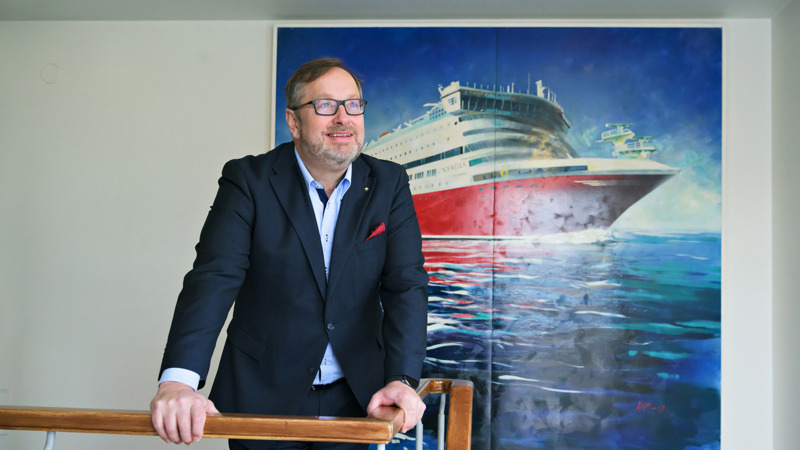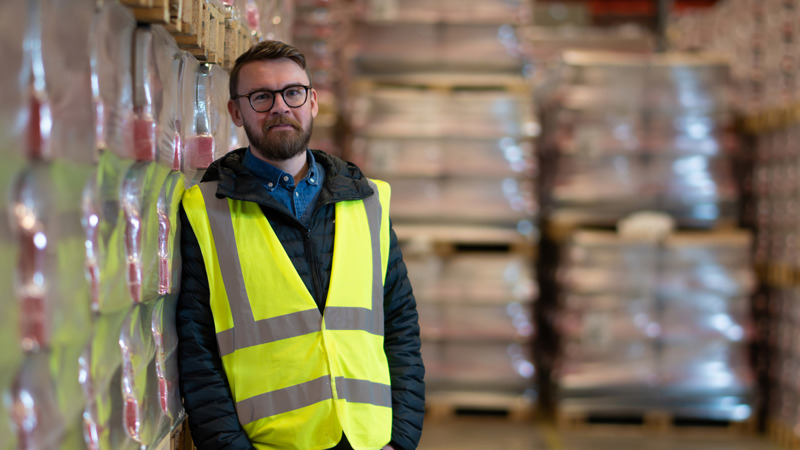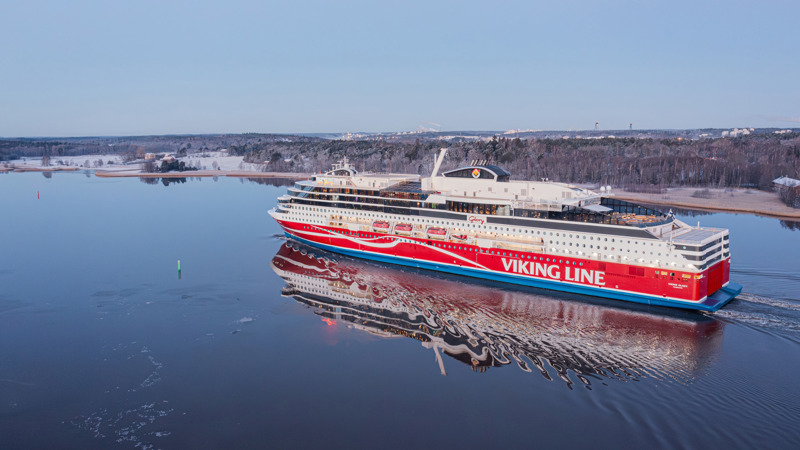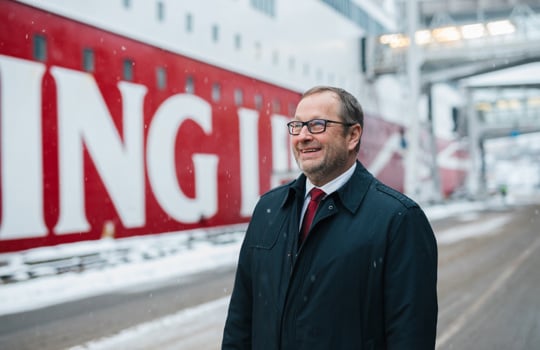Felix ketchup runs on renewable fuel from Sweden to Finland – Orkla Finland chose biogas for Viking Line’s shipping route
The transport of Felix ketchup from Fågelmara in Sweden to Turku in Finland has seen the first Baltic Sea green freight corridor brought into operation. The pilot project is a joint effort by Orkla Finland, Viking Line, Scandic Trans and Gasum to reduce emissions in freight transport.
Since the beginning of July, Felix ketchup, much loved by Finns, has been shipped across the sea from Sweden to Finland using biogas.
Food business operator Orkla Finland, which imports the ketchup to Finland, took a head start in using the green service provided by Viking Line which allows companies to choose biogas for cargo shipping and so reduce their carbon dioxide emissions. Gasum supplies Viking Line with the biogas.
Scandic Trans is Orkla’s logistics partner in the road transport of Felix ketchup and has been using biogas in all Orkla Finland’s imports since 2021. Now that the shipping leg of the journey also uses biogas, emissions in the transport chain from the Swedish ketchup factory in Fågelmara to Orkla’s logistics centre in the Finnish city of Turku have been reduced by 90%.
This is a small step on Orkla’s responsibility journey, but a big step in the logistics sector, since it is the first Baltic Sea green freight corridor to be in scheduled use. This means that the entire logistics chain is powered by renewable fuels.
The green freight corridor was launched in the joint interest of Orkla Finland, Scandic Trans, Viking Line and Gasum.
“We were all enthusiastic that changes are now being made in the right direction for the environment,” says Mauri Suuronen, Planning and Logistics Manager at Orkla Finland.
Biogas in shipping supports Orkla Finland’s sustainability ambitions
Thanks to biogas, Felix ketchup's carbon dioxide emissions on the shipping route were reduced by 100,000 kg/year compared to diesel fuel. If road transport using biofuel is included, the total reduction in transport chain CO2 emissions is 190,000 kg/year.
For the sake of comparison: the website of Finland’s environmental administration shows that the carbon footprint on an average Finn in 2021 was 7,700 kg. The reduction in emissions in the logistics chain is therefore equivalent to the carbon dioxide emissions of about 24 Finns per year.
“This is a step in the right direction and supports our sustainability ambitions, together with other environmentally friendly powertrains we use,” Suuronen says.
Orkla Finland’s ambition is to halve the greenhouse gas emissions in its value chain by 2030.
The choice of biogas is possible on the climate-smart Viking Grace and Viking Glory dual fuel vessels, which can operate on both diesel fuel and liquefied biogas or natural gas. Most of their voyages are powered by natural gas, which is a lower-emission alternative to diesel. However, biogas takes the emission reduction to the next level.
“Biogas is currently one of the best options for reducing emissions, especially for ships using liquefied natural gas. We are very grateful to Orkla Finland, which has set an example by embracing this new alternative,” enthuses Harri Tamminen, Vice President, Director of Freight at Viking Line.

Harri Tamminen, Vice President, Director of Freight at Viking Line has been hard at work presenting Viking Line's biofuel service in companies and conferences in various industries.
Small extra cost – great positive environmental impact
Mauri Suuronen sees sustainability as one of the most important criteria when choosing a logistics partner. Orkla Finland's long-standing logistics partner, Scandic Trans, based in Mustasaari, has been offering lower-emission transport for several years now. The logistics partner also informed Suuronen of the option provided by Viking Line to purchase biogas for freight transport. Suuronen was enthusiastic, and plans to switch to biogas started in spring 2024.
“Over the past five years, I’ve been challenging our partners and shippers on the need for gas- and e-powered logistics. This was another chance to do good for the environment and especially for the Baltic Sea,” Suuronen says.
Before switching to biogas, Orkla carefully considered which product category had an annual volume large enough on a suitable transport route to maximise the positive environmental impact of switching to biogas. Scandic Trans suggested Felix ketchups, most of which are exported to Finland by Viking Line ships.
“Each year around 150 full trailer loads, or almost 2.5 million bottles, of Felix ketchup are exported from Sweden to Finland. That’s a large volume,” Suuronen says.
Choosing biogas means a small extra price for the transport.
“The extra price of each shipment is quite small. Although of course, since there are many bottles annually, it adds up to quite a lot of money. All the same, we still want to make choices in the right direction,” Suuronen says.

Mauri Suuronen, Planning and Logistics Manager at Orkla, looks at 4 top criteria when choosing a logistics partner: a long shared history, quality, sustainability agenda and price.
“Good choices can already be made”
Viking Line already has a number of cargo customers who are buying or planning to invest in biogas. Harri Tamminen expects demand for biogas to grow as companies tighten their sustainability reporting requirements. Some will take a head start in emission reductions, others will do it only under extreme pressure.
“With biogas, we need to motivate companies to pay a small extra price since it delivers a far greater emission reduction than traditional fuels. Everyone should do what they can,” Tamminen says.
Mauri Suuronen has a clear message for companies thinking about how they can reduce emissions:
“Good choices in maritime logistics can already be made. Let’s all take bold steps towards a lower-emission future,” he encourages.

Viking Line has been offering biogas as an alternative fuel for cargo customers since autumn 2023 and to passenger customers since the summer of the same year.



